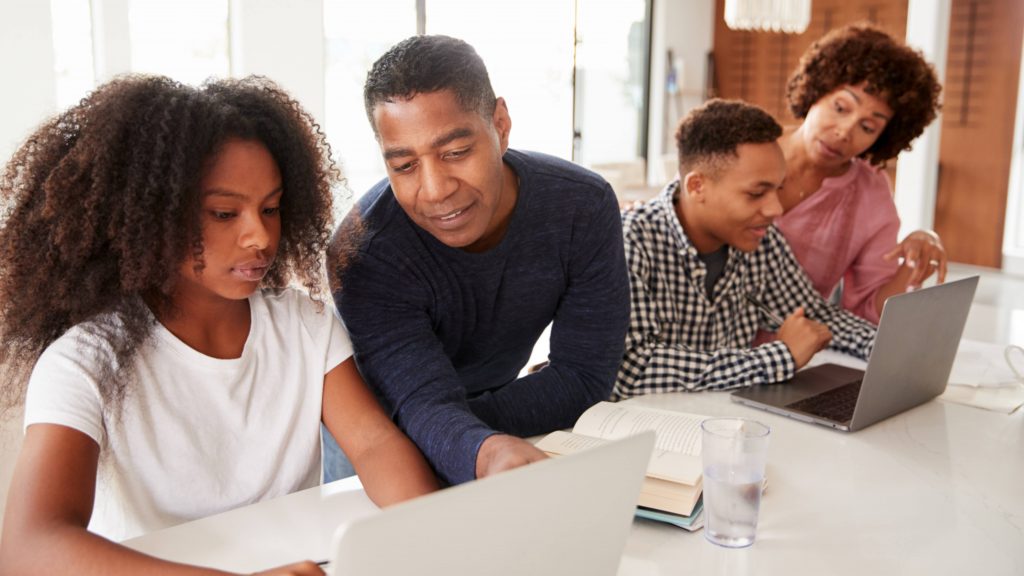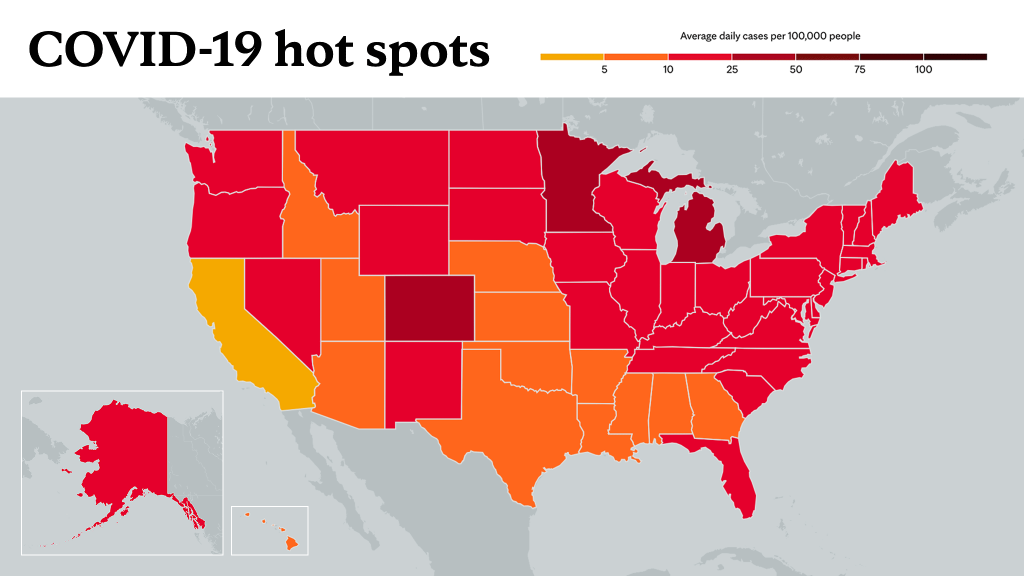
The U.S. Food and Drug Administration is expanding its emergency use authorization of the Pfizer COVID-19 vaccine for children 12-15 years. So parents and caregivers may be getting even more questions from children about whether vaccines are safe and how vaccines can help end the COVID-19 pandemic.
Information in this article was contributed by Jennifer S. Johnson, D.O., a Family Medicine physician at Mayo Clinic Health System in Mankato, Minnesota.
________________________________________________________
Educate yourself so you know the facts and can help put your kids at ease. Start by talking about the amazing work your child's body does to stay healthy. Explain that your child's body is strong and does a great job of keeping him or her safe from germs.
Here are some tips for answering common questions children may have about vaccines:
Why do I need vaccines?
When you get sick, you are given medicine to help you feel better. Vaccines are like medicine put into your body to keep you from getting sick in the first place. Vaccines are recommended throughout your life to help prevent you from getting illnesses. For example, you get a flu shot each year. These vaccines help protect people around you, especially grandparents and other family members with medical conditions.
How do vaccines work in the body?
Vaccines help your body build up the ability to fight off viruses. Vaccines may not stop you from getting viruses, but if you do get sick, the vaccine may keep you from becoming seriously ill or developing complications due to the illness. And that may be a lifesaving benefit of vaccines.
If I'm healthy, why do I need vaccines?
Even if you are healthy, you can't predict or know in advance if you will get sick. You also can't predict or know how severe the illness will be. Vaccines don't just protect you. They also protect your family, friends and your community.
Why do most vaccines come in a shot?
Most vaccines are given as a shot because if you ate or drank them, your stomach would think they're food and digest them. When they are given as a shot, the medicine stays strong and helps your body keep germs from making you sick.
Sometimes — as with the Moderna and Pfizer COVID-19 vaccines — multiple doses are needed. The first shot will get your immune system producing some antibodies to fight off the virus, but a second shot is needed to get your body into full defense mode.
Are vaccines safe?
All vaccines must undergo intensive safety monitoring. The Food and Drug Administration (FDA) has carefully reviewed all of the authorized and recommended vaccines. The FDA is responsible for reviewing all safety data from clinical trials to determine if the expected benefits of vaccination outweigh potential risks.
For your child, you could distill this as follows:
All possible measures have been taken to make sure that no harm will come to those who get vaccinated. Millions of people in the U.S. and around the world have received vaccines, including the COVID-19 vaccine. The delay in getting COVID-19 vaccines for younger children provides time for scientists and doctors to study the vaccine in kids your age.
Will I get sick from vaccines?
Some people will have side effects, but they are generally mild. These side effects are your body's way of responding to the vaccine and building up your immunity against viruses. It is common to have some minor pain, redness and swelling on the arm where the shot was given, and tiredness. Headache, muscle pain, chills, fever and nausea can also be side effects throughout the rest of the body. Some people have no side effects. If two doses are required, the side effects may be more intense after the second dose.
Could the vaccine make me unable to have children in the future?
There is no evidence that any vaccines, including COVID-19 vaccines, cause fertility problems, which are problems trying to get pregnant.
If I am vaccinated for COVID-19 can I do X, Y and Z?
It takes your body a few weeks after you are vaccinated to build immunity, so it is still possible to get the virus. There are still many more people who need to be vaccinated, and this will take time. Be patient, wear a mask, wash your hands and continue to practice social distancing. But getting vaccinated is an important step in stopping the pandemic and returning to normal.
Why can't younger kids get vaccinated for COVID-19?
COVID-19 vaccines will likely be available to younger children in the future. Fortunately, younger children are not as vulnerable to COVID-19 and its effects. People more vulnerable include doctors, nurses, older people and those with chronic health conditions, and they needed to be vaccinated first. In addition, vaccine experts know vaccines work well for adult bodies and want to make sure it's the same for kids.
Tips for teens on talking to peers about COVID-19 vaccines
It is likely that your teen has talked about COVID-19 vaccines with peers. Hesitancy to get vaccines can stem from fear and the unknown. Encourage your teen to learn the facts, using information from reputable resources, such as the Centers for Disease Control and Prevention (CDC), Mayo Clinic and Mayo Clinic Health System.
Here are some facts about COVID-19 vaccines your teen can share and discuss, should he or she have peers who are hesitant to get vaccinated:
- Getting the COVID-19 vaccine can protect you from getting sick.
- Getting vaccinated for COVID-19 helps others in the community.
- More vaccinations for COVID-19 mean a change to return to normal.
- While the development of the COVID-19 vaccine happened quickly, it did not skip necessary safety steps.
- People of color are especially vulnerable to severe COVID-19.
- Clinical trials of the COVID-19 vaccine included assessing safety and effectiveness included people of various diversities.
- COVID-19 vaccine side effects are temporary and do not mean you're sick.
- If you have allergies, you can still get the COVID-19 vaccine.
- There is no evidence that any vaccines, including COVID-19 vaccines, cause fertility problems.
- If you've already had COVID-19, getting vaccinated will add extra protection.
- The sooner you get vaccinated, the sooner you are protected.
- Vaccines can't save lives unless people get vaccinated.
Additional thoughts
Finally, praise your child's bravery to get vaccinated, and continue to be open and honest, so he or she knows to reach out to you with further questions or concerns.
_________________________________________________________
Information in this post was accurate at the time of its posting. Due to the fluid nature of the COVID-19 pandemic, scientific understanding, along with guidelines and recommendations, may have changed since the original publication date.
For more information and all your COVID-19 coverage, go to the Mayo Clinic News Network and mayoclinic.org.
Learn more about tracking COVID-19 and COVID-19 trends.








